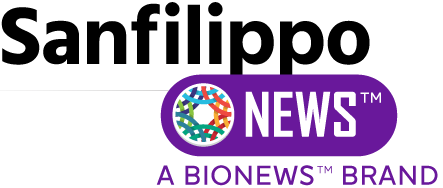Lysogene Regains Rights to LYS-SAF302 for Sanfilippo Type A

Lysogene is terminating its licensing agreement with Sarepta Therapeutics for LYS-SAF302, its investigational gene therapy for Sanfilippo syndrome type A, also known as mucopolysaccharidosis type IIIA (MPS IIIA).
The therapy is being evaluated in children with the condition in a Phase 2/3 clinical trial called AAVance (NCT03612869), whose top-line data are expected by midyear.
Initiated in 2018, the deal will be off from July 11 onward after the two companies failed to reach an agreement regarding Lysogene’s desire to get back the responsibility for the therapy’s global commercial supply.
The agreement’s termination will enable Lysogene to regain not only that, but also LYS-SAF302’s development and commercialization rights in regions outside Europe, including the U.S. — all previously granted to Sarepta under the original deal.
Lysogene will also be entitled to receive reimbursement for certain costs associated with the deal termination.
“I wanted to thank Sarepta for helping us take the LYS-SAF302 program forward over the past years,” Karen Aiach, Lysogene’s chairman and CEO, said in a press release.
“With the data readout expected in a few months time, we believe more than ever that LYS-SAF302 is an important treatment option for patients suffering from MPSIIIA, and we remain fully committed to the MPSIIIA community,” Aiach added.
Sanfilippo type A, the most common and severe form of Sanfilippo syndrome, is caused by the absence or reduced activity of the heparan N-sulfatase enzyme due to mutations in the SGSH gene. Heparan N-sulfatase is involved in the breakdown of a complex sugar molecule called heparan sulfate, and its deficiency leads to the molecule’s toxic accumulation inside cells.
Nerve cells are particularly sensitive to heparan sulfate buildup, dying as a consequence.
Injected directly into both sides of the brain, LYS-SAF302 uses a modified and harmless adeno-associated virus to deliver a healthy copy of the SGSH gene to brain cells.
As such, the one-time therapy is expected to increase heparan N-sulfatase levels in the brain, thereby slowing or preventing further neurodegeneration in Sanfilippo type A patients.
This type of therapy relies on a mechanism known as cross-correction, in which the enzyme produced by one cell can be released and subsequently taken up by neighboring cells, resulting in the correction of more cells than those directly targeted with the therapy.
In a mouse model of the disease, LYS-SAF302 was shown to safely and effectively correct heparan N-sulfatase deficiency, normalize heparin sulfate levels, and reduce brain lesions and neuroinflammation. It also resulted in a broadly and clinically meaningful increase in heparan N-sulfatase’s activity in both dogs and nonhuman primates.
LYS-SAF302 received orphan drug designation in both the U.S. and European Union and fast track and rare pediatric disease designations in the U.S. All are meant to expedite the therapy’s clinical development and regulatory review.
The Phase 2/3 AAVance trial, initiated in December 2018, is evaluating the therapy’s two-year safety and effectiveness in 19 children, 6 months and older, with Sanfilippo type A who were recruited at sites in the U.S. and Europe.
The study’s main goal is to assess changes in cognitive development, which will be compared with an external group of untreated patients from natural history studies.
Secondary goals include changes in quality of life and the levels of several disease biomarkers — heparan sulfate and GM2 and GM3, two sugary-fat molecules that also accumulate in Sanfilippo type A.
In June 2020, AAVance was placed on a clinical hold by the U.S. Food and Drug Administration following the detection of brain abnormalities at the treatment injection site in some patients.
A few months later, Lysogene reported the death from an unknown cause of a 5-year-old girl participating in the trial. At the time, the company said there was no evidence linking the child’s death to LYS-SAF302’s use.
Up to one year of data from nine children treated in the trial showed that LYS-SAF302 significantly reduced the levels of the three biomarkers in the cerebrospinal fluid (CSF), but not in the blood, consistent with its brain-directed mode of administration. The CSF is the liquid that surrounds the brain and spinal cord.
This trial was scheduled to conclude in March.
Lysogene “keeps focusing its resources on its strategic objective of becoming a leading gene therapy technological platform targeting CNS [central nervous system] diseases,” Aiach said. The CNS comprises the brain and spinal cord.
The company is also developing investigational gene therapies for other conditions affecting the CNS, such as GM1 gangliosidosis, fragile X syndrome, Gaucher disease, and Parkinson’s disease.
“We are also constantly looking for opportunities to further expand our pipeline with new CNS gene therapy assets,” Aiach added.







